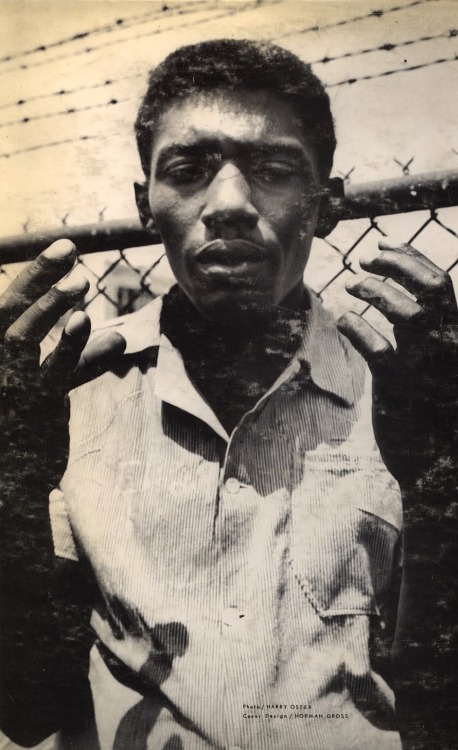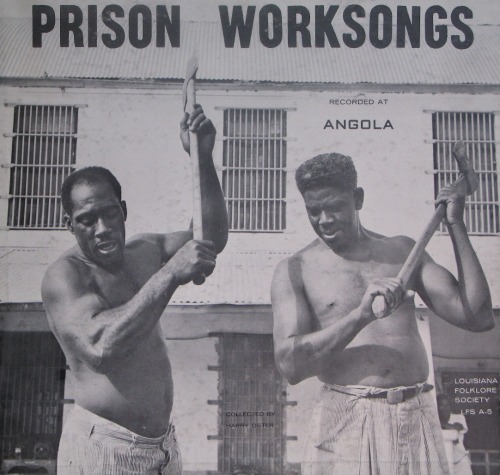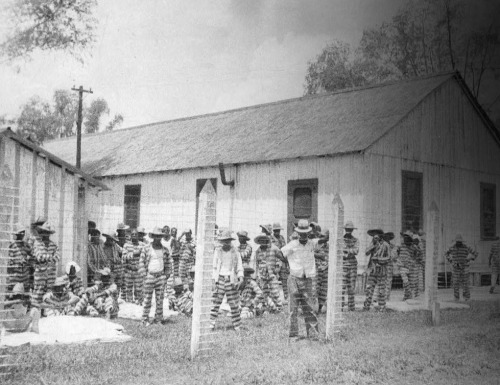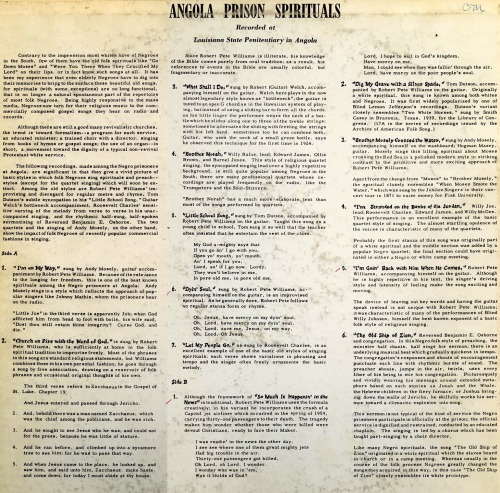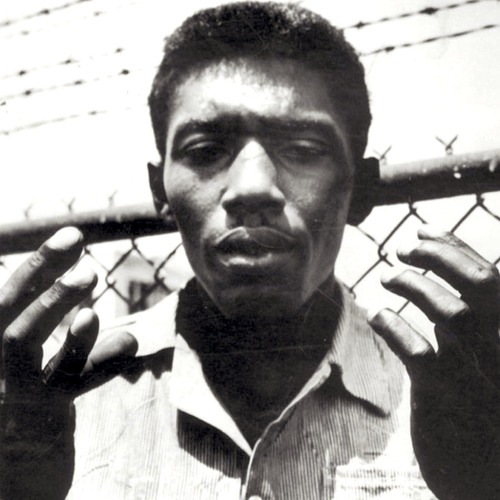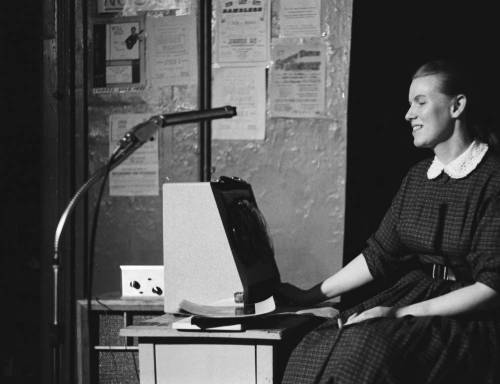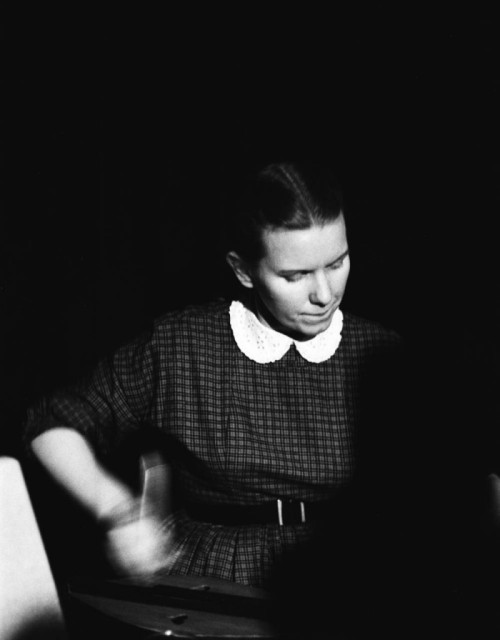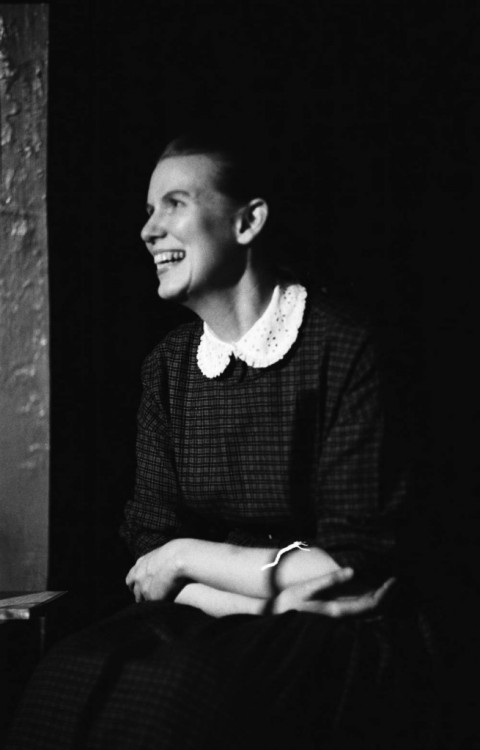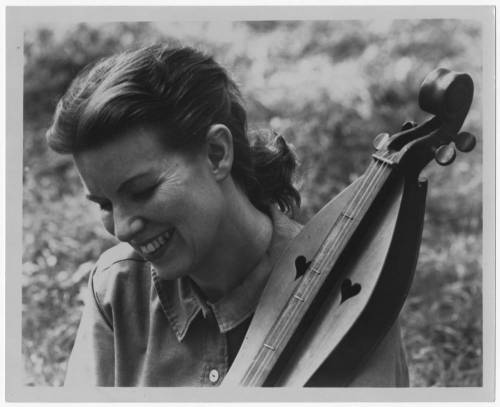#a capella
EVERYONE LISTEN UP! Angel Ari has blessed us all with a flawless a capella version of Dangerous Woman.
MySpace commissions Christian to create artist film on Findlay.
http://www.christianweber.net/#/commercials/myspace-findlay/
Post link
The Fairfield Four were founded in the 1920s and have been going strong ever since, recently releasing a new album. They were featured in the film O Brother, Where Art Thou?, which brought them into mainstream prominence, but they’ve always been popular on the gospel circuit. This song is really made by the bass, Isaac Freeman, who digs deeper and deeper down the scale. You can even see the great bass George Younce in the background enjoying the music (he starts getting up out of his seat when the tenor goes off). The only problem? The Fairfield Four was started as a trio, and seems to have five members here; I’m sure they were a quartet at some point.
A few legends of bluegrass singing a great old gospel song. Alison Krauss sang this on the O Brother, Where Art Thou? soundtrack, but it’s a much older song Doc says he got from his grandmother. The valley is a common theme in gospel music, from Lily in the Valley to Peace In The Valley to the biblical Valley of the Shadow of Death. Maybe it’s the humility of the valley next to the mountain (a place where God is often found), or the isolation from the rest of the world. The geography was changed to a river for the movie, another prominent symbol in gospel music, and was played during a scene of people being baptized en masse.
An introduction to polyphony in the country of Georgia. It’s thought that polyphonic singing was around before the introduction of Christianity to the region, and both sacred and secular songs are sung. While the video states there are three different styles of polyphony, you’ll find many variations and local styles throughout the country. It’s worth noting that these singers are all quite refined despite being “folk” singers. Folk music was highly prized in Soviet times as a representation of the people and regional identity, and so musicians and singers were paid to study and perform their traditional music (albeit in a sanitized and censored way). The video is from UNESCO, which designated Georgian polyphony as a part of the “Intangible Heritage of Humanity.”
Sean nós Irish singing is a solo tradition, with no accompaniment or harmony. But these guys took older Irish songs and added some close harmonies, and the result is remarkable. The tenor, Frank McPhail, has an ethereal quality to his voice that sets this apart from other male harmony groups. They’re still performing at festivals, mainly around Ireland and the UK, but this was taken from a TV performance sometime in the early 90s. The River Bann is the longest river in Ulster, the northern province of Ireland, and flows mostly through Northern Ireland.
The Reverend Frank Newsome is a preacher in a small denomination of Baptists known as the Old Regular Baptists. They eschew any kind of accompaniment, and their singing style tends to be drawn-out and forceful, a proclamation of their strongly held beliefs. Where some might try to make this hymn sound sweet or pretty, Rev Newsome belts it out. It should be noted that he spent 17 years mining coal before contracting black lung; his lungs seem to be in perfect shape here!
These are the Mpumalanga White Birds, an “Isicathamiya” a capella group from Durban, South Africa. Isicathamiya roughly translates to “walking softly” from Zulu, and seems to reference the choreography that goes along with the singing. Groups tend towards the theatrical in dress, movements, and singing (I love the white gloves as the hands shake and shimmer!). The most famous Isicathamiya singers have to be the men in Ladysmith Black Mambazo, who have appeared on many Western musicians’ albums, most notably Paul Simon’s Graceland.
Angola Prison Spirituals (Prison Work Songs); Louisiana Folklore Society, Folkways, Folk Lyric Records, Louisiana State Penitentiary.
It somewhat debatable whether this is actually unaccompanied singing, seeing as it would have been accompanied by the swinging of axes, or the ringing of hammers on nails. Work songs were hugely important in many settings, as it allowed workers to keep time and synchronize their tasks. In prison (and in slavery before), men who fell behind the pace could be beaten, and so setting an easy way to keep up made everyone safer. Spirituals also provided an outlet for the longing to escape; they might not leave their bonds behind in this world, but they would be free in the next.
Post link
Bertsolari are improvisational poets and singers in a centuries-old Basque tradition. There are competitions throughout the year, but the big tournament is a four year event, with a final competition in a massive arena. It’s amazing to watch the reactions from the crowd, so different from what is normally thought a “folk music” crowd would be like (check out the wave being started at one point). Basques are particularly proud and protective of their cultural traditions, in part because of the oppression that the community faced during the fascist Franco regime in the middle of the 20th century, which forced many markers of national identity underground. Now, with the Basque Country in Spain allowed some amount of autonomy, the language and customs of the region and its people are flourishing.
Jean Ritchie–singer, scholar, songwriter, activist, Kentuckian, “The Mother of Folk”
Some great photos of Jean Ritchie with recording gear and her famous dulcimer. Much of her repertoire was unaccompanied, and she’s the first recorded source for many ballads from her region of Kentucky.
Post link
The Khmer are the majority ethnic group in Cambodia, and can also be found in the neighboring countries of Thailand and Vietnam. Their form of Buddhism is a mixture of traditional Buddhism with some of the older animist religions of the area. This kid looks to be about ten or twelve, but what struck me about his voice are those quivers, similar to what Western music would call vibrato. Used sparingly, it really pops whenever he uses it.
I can’t speak or read Russian, so I don’t know what the song is about, but what caught my ear was the young woman in the black shirt and her (for lack of a better word) yipping. You’ll see this in some Slavic folk singing, and it’s an arresting sound for sure. Also of note is the fact that while many similar videos feature people in “traditional” dress, often very staid or forced. These ladies look like they’re genuinely enjoying themselves, and they’re dressed in clothing probably much more representative of the Russian “folk” today.
Doyle Lawson is a legend of bluegrass, and while his mandolin playing is second to none, it’s his a capella arrangements that draw me back to him. This one in particular showcases some modern, almost barbershop-like harmonies within a traditional framework. Bluegrass has always had a push-and-pull dialectic over tradition vs modernity, and I think this song, and Lawson’s music in general, treads that line beautifully.
Cantu a Tenore has relatives in Corsica, Sicily, and on the Italian mainland, but the Sardinian version has such a raw sound. Part of that is due to the guttural, raspy sound of the lower voices, which sound almost like the throat singers and chanters of Asia. This is a nice introduction to genre.
Thomas McCarthy is an Irish Traveller, originally from County Offaly but now living in London. Like the Romani (”gypsies”), Irish Travellers are an itinerant group with rich musical traditions. McCarthy’s songs are mostly learned from his family and other Travellers, and his style of singing is a real throwback to when this kind of singing was the night’s entertainment around the campfire. I got a chance to talk with him a few years ago, and he told me that the uilleann pipes (the national bagpipe of Ireland) was made to sound like that old style of singing. A unique sound, to be sure.
Cracked by Pentatonix
I’ll be Brrrommmping all day now.
New A Capella Groups Roundup
(no music available)
You might think, with as many a capella groups as Brandeis has, that there would be something for everyone. But all of Brandeis’ a capella groups are specific in one way or another – Voicemale is all male, Company B only sings songs from before 1980, and so on. With so many possible niches to fill, there are always a few left unoccupied.
That may be changing however, as this semester saw the creation of many new groups. Among these are Proscenium and Jewish Fella A Capella. Both groups seek to fill a particular void in the Brandeis a capella landscape.
Proscenium (named after the arch on a stage) is dedicated to the performance of theatrical music. According to co-coordinator Tracey Cohen ‘00, “we are going to be singing songs from both on- and off-Broadway shows. We’re also going to be once in a while singing songs from movies.”
“I’m very into theater and coming into Brandeis I wanted to do shows." Her first year, she had a role in a graduate production of "The Pajama Game." "It was so time consuming. I love singing and acting, but singing is the first of the things I love. [Proscenium] gives an opportunity to sing theater music without all the extra time commitments.”
So far things are looking good for the group. “We had a really impressive number of people come and audition." Look for the group to contain approximately twenty members, male and female. "We’re starting out next semester. Keep an eye out for us!”
Also coming next semester are Jewish Fella A Capella. “I enjoyed singing Jewish music at Shabbos lunch, we liked the all-male sound,” says founding member Dan Victor '01. “It’s nice to get a good group of guys together. My introduction to a capella was all male. Jewish music is my passion. [Jewish Fella A Capella is] a combination of both worlds.”
Jewish Fella A Capella currently have eight members, and have been holding rolling auditions to find three or four more. “The group of guys we have is excellent. There isn’t a shortage of singers, we just need to raise the interest. We encourage anyone who’s enjoyed [singing Jewish music] on the side to give it a shot.”
While the lineup is not yet set, they already have plans to perform in a Brandeis a capella festival, as well as a Brandeis Jewish festival of the arts. They’re also looking for some off-campus gigs, “to get the feeling of performing for someone.”
Both of these groups look to have promising futures in the ever-growing Brandeis a capella scene. And as long as there are niches to be filled, new groups continue to form. But at Brandeis, perhaps the campus activity capital of the universe, we wouldn’t expect any less.
originally written 11/21/99



